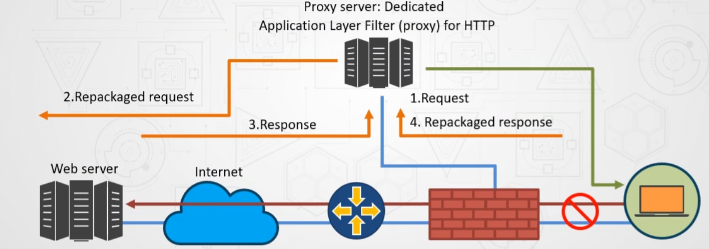Exploring The Different Types Of Proxy Servers
In today's digital age, online privacy has become a major concern for internet users. With hackers, government agencies, and even advertisers trying to track our online activities, it has become increasingly important to take steps to protect our anonymity when using the internet. One way to do that is by using anonymous proxy sites. In this post, we'll explore the different types of proxy servers available and how they protect your privacy. But first, let's understand what a proxy server is. A proxy server is a computer or an application that acts as an intermediary between your device and the internet. When you connect to the internet through a proxy server, your device's IP address is hidden, and all your requests are routed through the proxy server. This makes it harder for others to track your online activities. There are several types of proxy servers available, each with their own unique features and benefits. Here are some of the most common types: 1. Web proxies Web proxies are the most basic type of proxy servers. They are web-based services that allow you to access websites anonymously by hiding your IP address. When you use a web proxy, all your internet traffic is routed through the proxy server, which then requests the web page on your behalf. This way, the web server only sees the IP address of the proxy server, not your own. Web proxies are easy to use and can be accessed from any device with an internet connection. 2. Anonymous proxies Anonymous proxies are similar to web proxies, but they provide an extra layer of anonymity by removing any identifying information from your web requests. This makes it even harder for others to track your online activities. Anonymous proxies can be used for browsing the web, streaming videos, and downloading files. 3. Transparent proxies Transparent proxies are proxy servers that do not hide your IP address. They are often used by businesses and organizations to monitor their employees' internet activities or to filter out unwanted content. Transparent proxies are not suitable for anonymous browsing and should be avoided if you want to protect your privacy. 4. SOCKS proxies SOCKS proxies are a type of proxy server that can handle any type of internet protocol traffic, including email, instant messaging, and file sharing. They are more flexible than web proxies and can be used for a variety of purposes, including bypassing geo-restrictions and accessing blocked websites. 5. VPN proxies Virtual private network (VPN) proxies are a combination of a proxy server and a VPN service. They provide a secure, encrypted connection that routes all your internet traffic through a remote server. VPN proxies are one of the most effective ways to protect your online privacy, but they can be a bit more complex to set up and use than other types of proxy servers. Now that we've covered the different types of proxy servers available, let's take a look at how they protect your anonymity. First, when you connect to the internet through a proxy server, your IP address is hidden. This makes it harder for others to track your online activities, as they can't identify your device based on your IP address alone. Second, proxy servers can encrypt your internet traffic, which makes it much harder for anyone to intercept and read your data. This is especially important if you are using public Wi-Fi networks, which are notorious for being insecure and easy to hack. Finally, proxy servers can be used to bypass internet censorship and geo-restrictions. For example, if you are in a country that blocks access to certain websites or services, using a proxy server can help you get around those restrictions and access the content you want. In conclusion, anonymous proxy sites can be an effective way to protect your online anonymity and privacy. By using a proxy server, you can hide your IP address, encrypt your internet traffic, and bypass internet censorship and geo-restrictions. However, it's important to choose the right type of proxy server for your needs and to make sure you are using a reputable service. With the right tools and precautions, you can enjoy a safer and more secure browsing experience on the internet. 




anonymity

downside

proxy server

servers
Post a Comment for "Exploring The Different Types Of Proxy Servers"